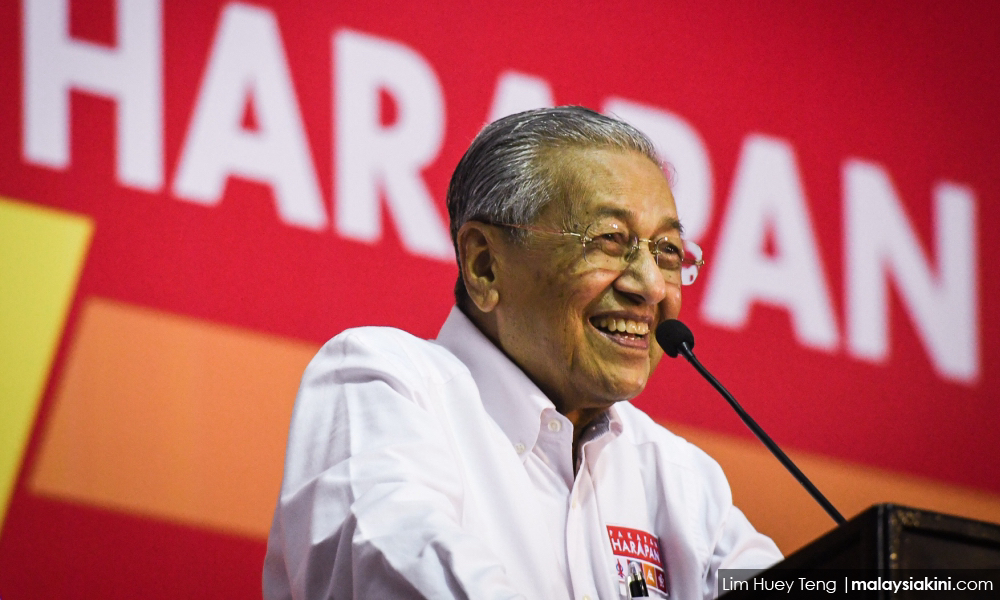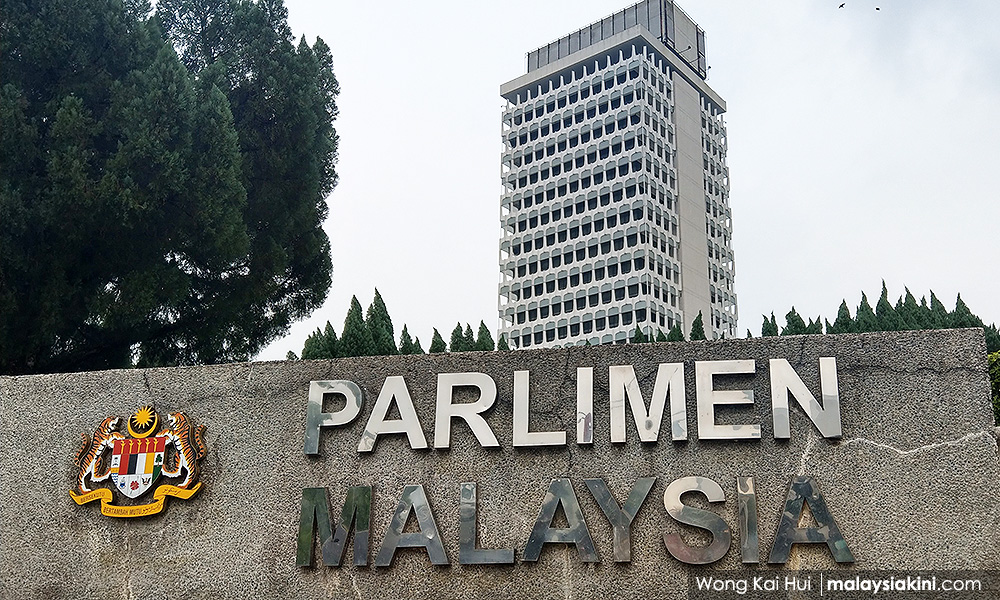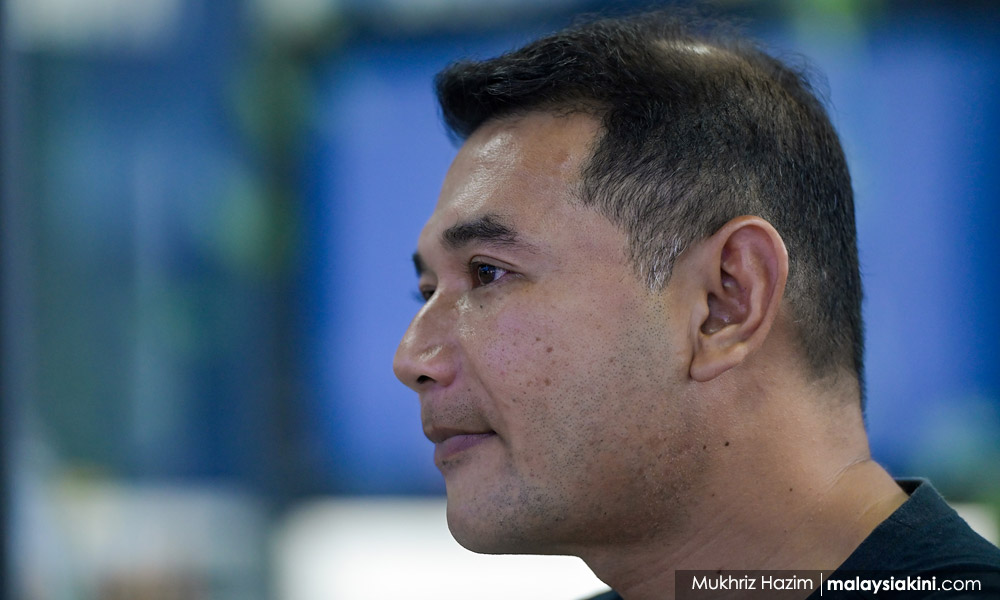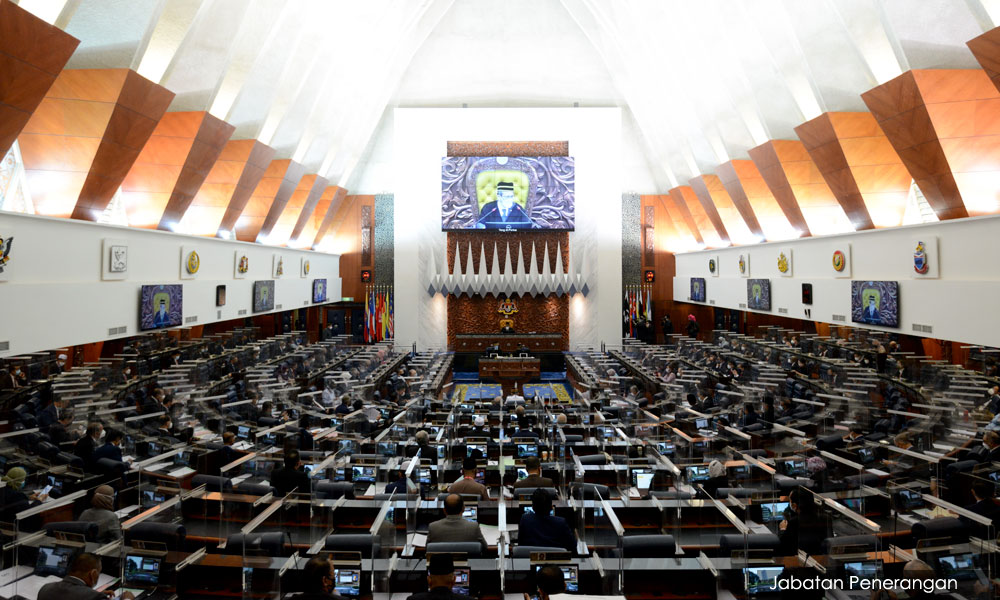INTERVIEW | Rafizi Ramli has faced many criticisms over his decision to leave politics in late 2018, shortly after he narrowly lost to Azmin Ali in the race to be PKR deputy president.
Critics said that the former Pandan MP, who was previously seen as one of PKR president Anwar Ibrahim’s closest advisers, had a tendency to withdraw when things did not go his way.
But Rafizi said that was an unfair evaluation of his decision to quit politics back then.
“That is really not fair because I had 14 cases. I was already sentenced to five years in prison. I didn’t withdraw,” he argued.
Speaking to Malaysiakini in an interview at his office in Sungai Besi recently, Rafizi explained that his decision to leave politics was because he felt he did not have a place in a Pakatan Harapan that so highly valued former prime minister, Dr Mahathir Mohamad, at the time.
He said: “After the last general election, the Harapan leadership more or less felt that it was best to accommodate Mahathir and despite whatever my contributions towards the general election, my dissenting view then was seen as destabilising.”

Rafizi added: “I understood the thought process of the (Harapan) leadership during those times… so what choice do you think I had?
“The best thing to do is to accept that, hopefully, they’ll be able to do justice to the mandate that was given to them. Well, I played my role, I understood my place and I moved on.”
Johor polls changed Rafizi’s mind
He had no intention of ever returning to politics until the Johor snap polls happened.
It became obvious after the Johor election that Harapan was sliding backwards to pre-2004 when it only managed to get about 10 percent of votes from fence-sitters.
Worse, Rafizi said, there is now another coalition - Perikatan Nasional (PN) - which managed to surpass 25 to 30 percent of voter support.
This would risk relegating PKR and Harapan into a third party in a multi-party system, he added.
“Anywhere in the world, the third party usually does not survive,” Rafizi warned.
If Harapan becomes the third force, he said, everything the opposition had worked for in the last two to three decades will go back to square one.
“Because what we are facing now is a scenario where, if the top two biggest coalitions in Parliament are Malay-centric and with no differentiation of ideas and approach to economic policies, then voters will wake up five, six years down the line and realise that we don’t really have a choice,” he added.
Rafizi has since announced his political return and said he would offer himself as a candidate for the PKR deputy presidency in the forthcoming PKR national leadership election.
Eyeing a return to Parliament
The former lawmaker told Malaysiakini that he would also like to run for Parliament again, if given a chance by his party.
“It’s quite obvious that if you want to appeal to fence-sitters again, I have to run for Parliament again.
“In that sense, whether I win the (PKR) deputy president (post) or not is almost secondary. To be frank, it is because the focus is a lot bigger than that,” Rafizi said.

The public expects more from certain MPs, especially with regard to their activism in Parliament, he added.
“So if my brand of activism in Parliament is required, that’s something we can focus on as well, beyond just the context of the deputy presidency for the party.”
However, when it came to which seat he would like to contest in, he said that decision would be left to the party.
Rafizi did not contest in the 14th general election (GE14). Three months before GE14, he was sentenced to 30 months in jail after he was found guilty of having leaked confidential banking details belonging to the National Feedlot Corporation (NFC) in March 2012.
Article 48(1)(e) of the Federal Constitution states that a person is disqualified from being an MP if they have been sentenced to imprisonment for a term of not less than one year or a fine of not less than RM2,000.

Below are excerpts from Malaysiakini’s interview with Rafizi, which have been edited for language and brevity:
Malaysiakini: Your critics have argued that you tend to withdraw when things do not go your way. Are you committed to staying for the long haul this time?
Rafizi: That’s really not fair because I had 14 cases. I was already sentenced to five years in prison. I didn’t withdraw.
What happened after the last general election was that the Harapan leadership, more or less, felt that it was best to accommodate Mahathir and despite whatever my contributions towards the general election, my dissenting view then was seen as destabilising. That was the attitude of Harapan and the PKR leadership.
If you were in my shoes, first, I wasn’t really interested in politics in the first place. It’s quite obvious I was not made for politics. Secondly, I had more or less done my bit and I understood the thought process of the leadership during those times, that it was best to accommodate Mahathir and not pay attention to dissent. So, what choice do you think that I had?
The best thing to do is to accept that they will, hopefully, be able to do justice to the mandate that was given to them. I could once in a while still give my opinion, but I also understand that the opinion was not really welcome. Not just by Harapan but also by the public at large, to be frank.
So in that situation, the best thing for you to do is to accept that you have done your bit. It’s nothing personal, I was not interested in any positions anyway. I was only hoping that we manage the transition to a fledgling democracy properly, because such changes all around the world usually were short-lived, it was not managed properly.
In Mexico and Japan, it was short-lived. Usually, it goes back to the hegemony of one party that has ruled for a long time, so that one or two years was extremely important to make sure that we manage the expectations of the public properly, because it is not really about just winning the election. It’s about making sure that reforms can continue and people don’t lose their hope.
Well, I played my role. I understood my place and I moved on. To be frank, I had no intention of coming back. But it’s precisely because, after the Johor election, it became quite obvious that we are going back to pre-2004, when the fence-sitters’ support for Harapan was around 10 to 11 percent.

And when you already have another coalition, which is PN, and it is already surpassing 25 to 30 percent voter support, that really risks pushing PKR and Harapan to become the third party in a multi-party system. Anywhere in the world, the third party usually does not survive, unless we appeal to the fence-sitters again and try to bring up Harapan and PKR to being a second party.
Everything that I think a lot of people had worked hard for, for the last two, three decades, most probably will be returned to square one because what we are facing now is a scenario where if the top two biggest coalitions in Parliament are Malay-centric, with no differentiation of ideas, approach to economic policies, then voters, generally the fence-sitters who are not happy now, will wake up five, six years down the line and realise we don’t really have a choice. It is either this one or that one but we know nothing will resolve the problems radically that this country needs.
I think appealing to fence-sitters and energising them has become extremely important. So that is why, there is no question, I think that was the past, there is no point in talking about it. I can go on and on about what had happened. That will just make a lot of people uncomfortable because it had happened.
I think the focus should be on how do we capture the imagination of the fence-sitters again so that they believe it is worth doing, that change or continuously putting your faith in a progressive coalition is something that is worth doing for them.
A seat in Parliament
Malaysiakini: If you lose the deputy presidency, is there a plan B? Are you going to run for Parliament again?
Rafizi: It is quite obvious that if you were to appeal to the fence-sitters again, I have to run for Parliament again. In that sense, whether I win the deputy presidency or not is almost secondary, to be frank, because the focus is a lot bigger than that.
The focus is to make sure we remain relevant and the focus has always been about the party, not really about party positions. I have been able to give my opinions even if I didn’t have any senior party positions anyway.
But I understand as well that the public expects a bit more activism in Parliament from certain MPs. So, definitely, if I am given a chance I will run for MP again. So, on that basis, regardless of the outcome of the party election, things are very different than 2018.

In 2018, I was a member of the public, just like you guys. I was not an MP and in terms of party positions, the party decided that I should not be seen in the Harapan presidential council or in any decision-making, for fear of upsetting Mahathir. So, in that sense, I was clipped. I didn’t have much room to manoeuvre politically. Anything I did beyond that would have me being seen as a troublemaker.
I fully respected the need at the time to find a balance between stability and dissenting voices. Things would most probably be different this time around because Harapan and PKR are a lot weaker. We don’t actually know how many MPs we will have in the next Parliament.
So, if my brand or activism in Parliament is required, that is something that I hope we can focus on as well, beyond just the context of the deputy presidency for the party.
Malaysiakini: If you can contest, which parliamentary constituency would you want to contest in?
Rafizi: That has to be left to the party. That is jumping the gun. I think the party is also fully aware that, in all likelihood, I would offer myself to stand again for Parliament. - Mkini




No comments:
Post a Comment
Note: Only a member of this blog may post a comment.